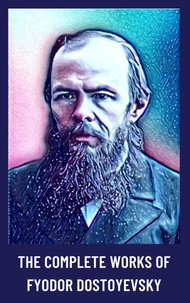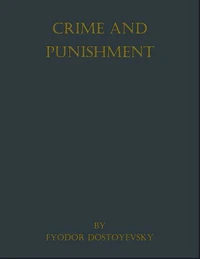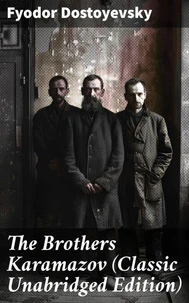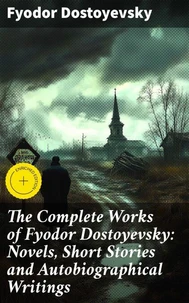The Idiot. Bestsellers and famous Books
Par :Formats :
Disponible dans votre compte client Decitre ou Furet du Nord dès validation de votre commande. Le format ePub est :
- Compatible avec une lecture sur My Vivlio (smartphone, tablette, ordinateur)
- Compatible avec une lecture sur liseuses Vivlio
- Pour les liseuses autres que Vivlio, vous devez utiliser le logiciel Adobe Digital Edition. Non compatible avec la lecture sur les liseuses Kindle, Remarkable et Sony
 , qui est-ce ?
, qui est-ce ?Notre partenaire de plateforme de lecture numérique où vous retrouverez l'ensemble de vos ebooks gratuitement
Pour en savoir plus sur nos ebooks, consultez notre aide en ligne ici
- Nombre de pages783
- FormatePub
- ISBN978-3-7364-1802-8
- EAN9783736418028
- Date de parution26/10/2016
- Protection num.Digital Watermarking
- Taille794 Ko
- Infos supplémentairesepub
- ÉditeurAndhof
Résumé
The Ideot is an ironic reference to the central character of the novel, Prince Lyov Nikolaevich Myshkin, a young man whose goodness and open-hearted simplicity lead many of the more worldly characters he encounters to mistakenly assume that he lacks intelligence and insight. In the character of Prince Myshkin, Dostoyevsky set himself the task of depicting "the positively good and beautiful man". The novel examines the consequences of placing such a unique individual at the centre of the conflicts, desires, passions and egoism of worldly society, both for the man himself and for those with whom he becomes involved.
The result, according to philosopher A. C. Grayling, is "one of the most excoriating, compelling and remarkable books ever written; and without question one of the greatest."
The result, according to philosopher A. C. Grayling, is "one of the most excoriating, compelling and remarkable books ever written; and without question one of the greatest."
The Ideot is an ironic reference to the central character of the novel, Prince Lyov Nikolaevich Myshkin, a young man whose goodness and open-hearted simplicity lead many of the more worldly characters he encounters to mistakenly assume that he lacks intelligence and insight. In the character of Prince Myshkin, Dostoyevsky set himself the task of depicting "the positively good and beautiful man". The novel examines the consequences of placing such a unique individual at the centre of the conflicts, desires, passions and egoism of worldly society, both for the man himself and for those with whom he becomes involved.
The result, according to philosopher A. C. Grayling, is "one of the most excoriating, compelling and remarkable books ever written; and without question one of the greatest."
The result, according to philosopher A. C. Grayling, is "one of the most excoriating, compelling and remarkable books ever written; and without question one of the greatest."






